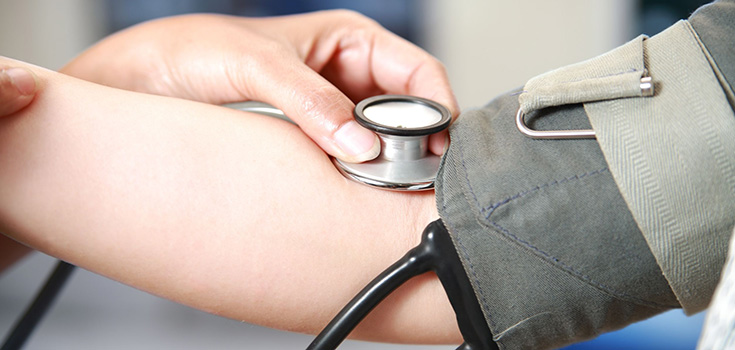This Bad Habit Could Increase Risk of High Blood Pressure by 80%

If you go to bed too late, sleep too little, or just don’t sleep very much, you could be jeopardizing your health. While inconsistent sleep patterns have been tied to health problems such as weight gain, increased breast cancer risk, and an impairment in overall alertness, it doesn’t stop there. In one study, researchers found that men who did not have healthy deep-sleeping habits were 80% more likely to develop elevated blood pressure than those who slept well.
Researchers studying sleep patterns of men found that men who slept poorly during the deep stages of slow-wave sleep were at a much higher risk of developing high blood pressure than men whose sleep was restorative. This finding was true regardless of whether or not the men were obese or how long they stayed asleep.
There were almost 800 men ages 65 and older involved in the study, which looked at the relationship between high blood pressure and sleep duration, patterns of brain wave activity, and breathing problems. High blood pressure was prevalent amongst men who spent less than 4% of their sleep in slow-wave sleep. These same men were more likely to awaken frequently, suffer from sleep apnea, and have overall poor sleep quality. Although the study examined men, researchers stress that the results can be applied to women as well.
“Reductions in the deepest stage of sleep is specifically associated with an increased risk of developing high blood pressure,” said Dr. Susan Redline, the Peter C. Farrell Professor of Sleep Medicine at Brigham & Women’s Hospital, Beth Israel Deaconess Medical Center and Harvard Medical School.
Previous research has also shown that there is a link between elevated blood pressure and sleeps disorders such as sleep apnea. Health professionals stress that diet, physical activity and sleep are pillars to good health and should not be ignored.
Restorative sleep is necessary for countless reasons, including including for the healing and regeneration of all cells in the body. Although many of us do make a real attempt to go to sleep early and put in a healthy amount of time, all too often people are spend much of their time in bed not sleeping.
With 60 percent of adults not getting enough sleep, the average American spends 7.5 hours in bed while only sleeping for 6.1 of those hours.
Too little sleep is more than often the problem, but remember not to oversleep, too. Get your sleep patterns in check to avoid any chance of increasing your risk for various health issues.
Additional Sources:

don't really know what is meant by "website"